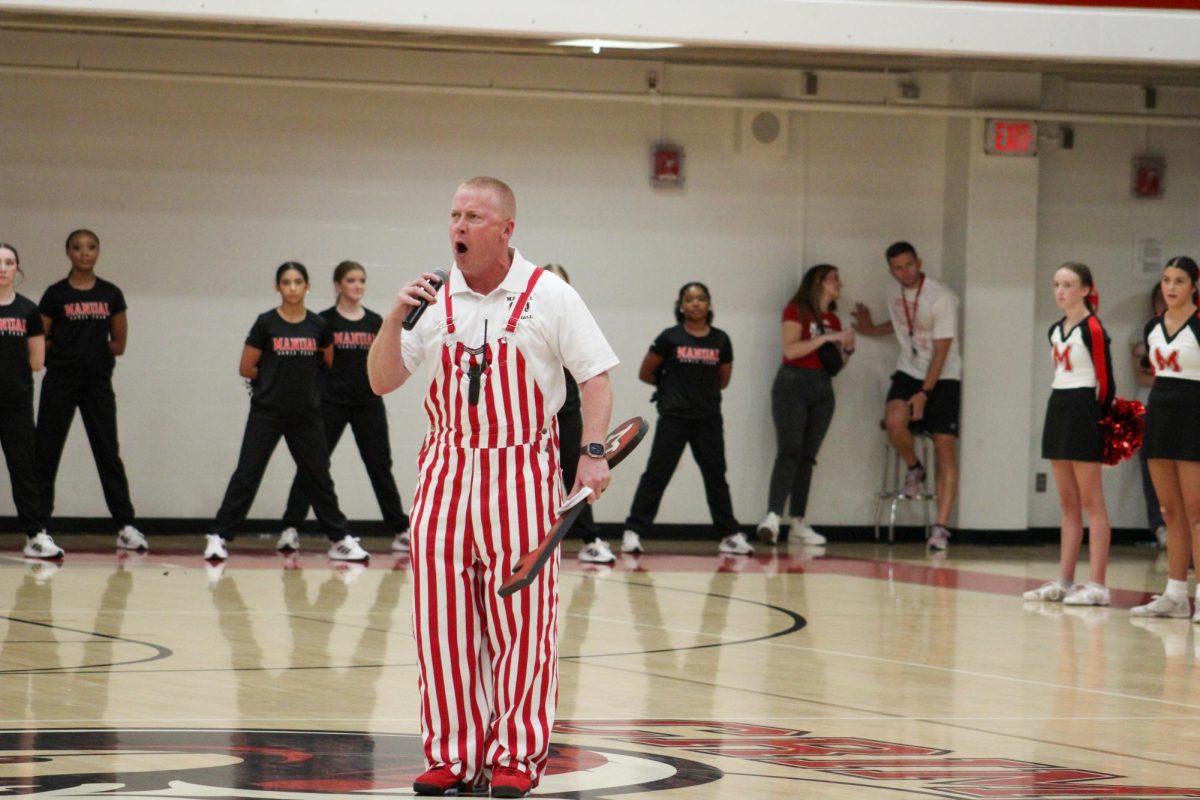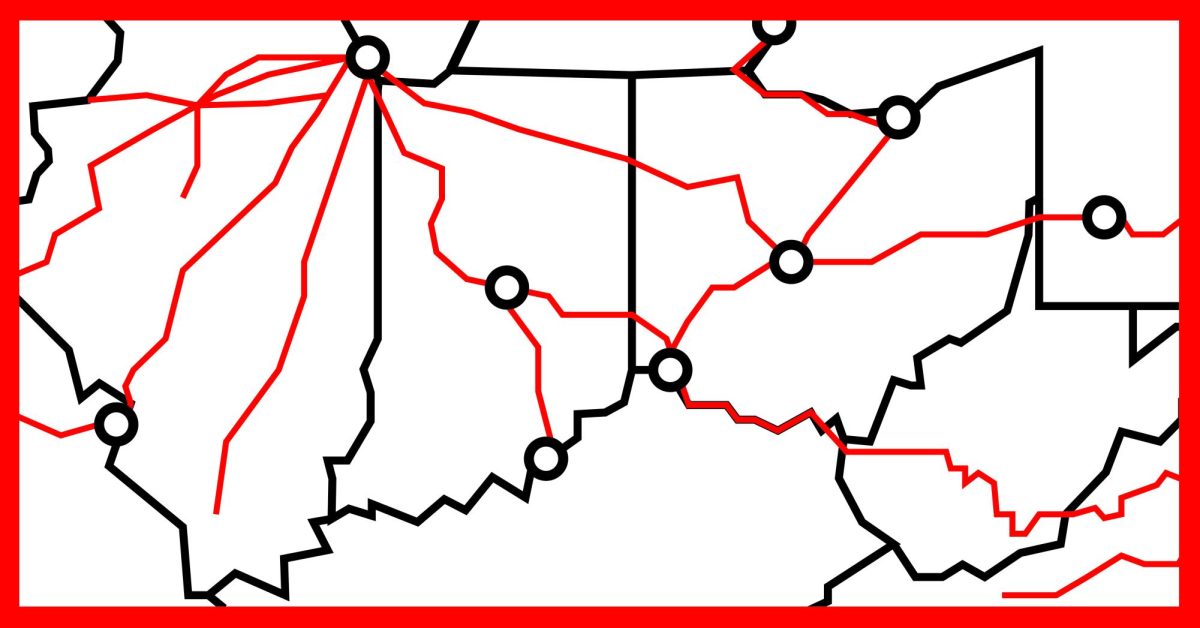
In order to have healthy and productive discussion in our English and social studies classes, we need to make sure that we’re communicating in a manner that is both effective and respectful to dissent. There are a number of buzzwords, however, that are often simultaneously mis- and overused, which can muddy the waters and prevent our discussions from being particularly meaningful. Some of these words are used incorrectly, some are overblown, some facilitate lazy argumentation and others still are just plain bad writing.
(Note to liberals: if you feel like the brunt of my criticism is aimed at you, its not because your argumentation is particularly bad, but instead because I’ve been overexposed to it.)
***
Socioeconomic:
When it comes to terms that are flagrantly over-applied for what seems to be little more than an attempt to make the writer sound smarter than he is, ‘socioeconomic’ has got to take the crown.
Although the term has legitimate origins as an attempt to measure the interaction between income and social class, the phrase ‘socioeconomic status’ is often just used in situations where just one of the concepts would have been sufficient.
A low-earning, middle class white family does not, for instance, possess a low ‘socioeconomic position’—they’re just poorer than average. Most misuses of this term involve this type of haphazard conflation of these variables.
In short, stop being needlessly pretentious, and simply think about which category you’re actually referring to—class or economic—because they’re not the same thing.
Systemic:
Yet another infamously abused word in online thinkpieces is ‘systemic’ (despite the fact that ‘systematic’ is a totally different word, these two are used interchangeably, and so my gripes apply to this term as well). Technically defined as referring to a whole system (as opposed to an individual part or actor), ‘systemic’ is usually trotted out to mean, “something that, like, totally happens in a complicated system that I don’t really feel like explaining.”
But the use of a term like systemic to refer to instances of very real problems such as sexism or racism that are not—in some cases—institutional muddies the waters and misrepresents worthy causes.
Thus the frustrating irony when protesters seeking redress for racial inequality accused University of Missouri President Tim Wolfe of not understanding ‘systematic racism.’ What ‘systems’ are people usually referring to? Certainly many American institutions are ridden with racism (this is infamously true of the justice system), but much of the time this occurs not due to legal or systemic inequalities, but flaws and imperfections of individual cogs in the machine. Human psychology, more specifically, is often to blame here, not the specifics of the structure itself.
The most perplexing thing about ‘systemic bias’ as a term of art is its oxymoronic nature. Biases are predispositions or logical mistakes made by individuals, making them inherently internal and therefore not derived from a system. Most of the time, this is an issue of misplaced vocabulary. Systemic is usually used as a surrogate for ‘ubiquitous’ or ‘pervasive,’ in spite of the fact that this is imprecise and shifts blame away from the actual individuals involved in wrongdoing.
There are plenty of exceptions and limitations to this rule, and I don’t intend to speak with firmness or certitude. This would be a far less nuanced discussion if things like systemic racism or sexism didn’t exist, because then I could recommend against the term’s usage as a blanket argument. But since they do exist, I’m content to warn against frivolous usage of it. What amounts to an otherwise useful and meaningful term is at risk of becoming a watered-down buzzword.
Establishment:
Anyone who has been paying any lick of attention to political journalism over the past six months is no doubt sick of ‘The Establishment.’ 36.5% of Democrats and 54.7% of Republicans are, but that’s beside the point. ‘The Establishment’ quickly became one of 2015’s most irritating, thought-terminating cliches, enduring near-constant overuse by journalists seeking to describe the appeal of authoritarian demagogues like Ted Cruz and You Know Who.
Designed to describe the vague and monolithic party structure championed by Marty Cohen’s political science juggernaut, The Party Decides: Presidential Nominations Before and After Reform, no one really seems to be sure who is actually in ‘The Establishment’ anymore. Everyone can agree that the RNC is part of a party establishment, but what about influential commentators such as Bill Maher or Rush Limbaugh? What about Fox News and the Huffington Post? Despite being a member of the most “insider” body in the U.S. government, Senator Ted Cruz is still held up as an ‘anti-Establishment’ candidate. The imprecision of the term is staggering.
Like a lot of vaguely negative descriptors, everyone seems to point fingers at somebody else when it comes to identifying establishment figures. Hillary Clinton took this concept to its absurd extreme at the last Democratic debate by claiming that she—a first lady of a two-term president, member of the Senate and former U.S. Secretary of State—was somehow not a member of the dreaded establishment.
Thankfully, I’m not alone in my distaste for this weasel-word. Antipathy for the term has united strange bedfellows across the political spectrum, such as Charles Krauthammer and MSNBC, the latter going so far as to call the term, “an overused buzzword and nefarious label to slap onto anyone who doesn’t like [a candidate].”
Linked:
This word has several insidious cousins such as ‘connected,’ ‘correlated,’ or worst of all: ’caused.’ The problem with each of these terms (excluding the last one) is that each implies causality in common parlance while simultaneously and conveniently excusing writers from having to explicate such a thing themselves. Although most educated readers will know that correlation doesn’t equal causation, this is rarely explained explicitly, and audiences are forced to draw up such connections themselves.
Good writers don’t just say that something is linked—they explain how, as a link on its own means nothing. Did you know that the annual number of people who drown in pools is linked to the number of films that Nick Cage appears in? Neither did I! Is this ‘link’ meaningful in any way? Nope. Causality is a notoriously opaque concept, and so any attempt to suggest it should be met with a healthy dose of skepticism.
-phobic (e.g. ‘Homophobic,’ ‘Transphobic,’ ‘Islamophobic,’ etc.):
As a matter of maintaining respectful and positive discourse with regards to LGBTQ+ rights and related topics, it’s time to retire the loaded and unprofessional ‘-phobic’ family of terms. Although these descriptors are well and alive when it comes to our civil rights discourse, the Associated Press actually retired them back in 2012 due to their imprecise nature.
In a powerful opinion piece last month, the New York Times wrote that the terms were “dulled” and “trollish” “one liners” used to “shame ideological opponents into silence.” Like ‘systemic’ before it, there isn’t much doubt that the problems these terms address are real, but unlike systemic, -phobics are bad form in general rather than simple over-application.
Additionally, there’s a fair amount of evidence to suggest that these accusations masked in clinical diction are also counterproductive. Name-calling and accusing people of bias often puts them on the defensive, encouraging them to support fallacious ideas they otherwise would have negotiated on had a more empathetic approach been taken. We should be fairly confident in our ability to engage with and effectively argue against opponents in these areas without having to resort to veiled name-calling.
***
In conclusion, I’m not one to take the stance of a language purist—I’m not trying to tell you which words you can and can’t use. But we would stand to benefit as writers and intellectuals by banishing some lazy words from our vocabulary, or in the very least, thinking twice before using them.





domain dns info • Feb 9, 2016 at 9:06 am
Hey, Seth!
So first things first, I want to make clear that I’m not endorsing Linguistic Determinism at all. It’s true that a lot of similar arguments do this, but my approach to the issue isn’t that these terms have negative aspects that will be erased from our thought if we stop using them. Instead, I’m suggesting that these terms cause miscommunication because they convey implications that are counter to the speaker’s intentions. A well-intentioned speaker that refers to an opponent with a “-phobe” word that sends the discourse down a negative path, even if they don’t mean to. This is a rare situation when a fallacy like ad hominem is actually built into a word, not only connotatively, but etymologically as well.
It’s difficult to assess your other argument to the tune of the idea that more people are grappling with social issues who haven’t been in the past, but I think this ultimately comes down to the standards we have for our dialogue. We always need to be challenging each other to find new ways to think about and communicate our ideas, and so I don’t find it to be a particularly large problem to try and stir up the pot when it comes to the vocabulary we use to express them. You’re certainly right that sectioning off words from public use just creates euphemisms, but that’s not the way this piece should be read, where my advocacy is more to the tune that we should decrease our reliance on them.
Lastly, there’s a few different audiences I’m speaking to here. You’ve done a great job honing in on one of those(students), but it’s worth mentioning that for terms like ‘Establishment’ or ‘Linked,’ my audience is primarily professional journalists who should know better.
Thanks for your rather substantive response.
domain dns info • Feb 8, 2016 at 4:44 pm
Although I agree with the general premise of the piece, that many people don’t consider the depth of their arguments, I am much more hesitant to get behind the critique you present.
Arguments against any use of language tend to commit the classic Orwellian blunder, assuming that the word itself contains or limits the concept, an idea unfounded in linguistic literature and easily exposed as largely fraudulent with simple thought experiment. For example, if I wish to describe to you an object many people sit on, I can employ the word “chair.” If you were to remove the word “chair,” I am not suddenly incapable of grasping the object: I could express the concept by describing the chair or appropriating another word to express the concept. In this way, the words you dislike are not your enemy, because they are simply the messenger; the concepts themselves–conflating class and wealth, or using veiled ad hominem in discourse–the message. As the old saying goes, don’t shoot the messenger.
In fact, I would add that evolution is actually a natural process in language. For example, in the process of pejoration, words with certain meanings are seen as too negative, replaced with more politically correct terms, which in turn become negative themselves (for instance, the evolution of “people of color” from earlier terms, and the current move against “African-American” which replaced that). Furthermore, imprecise vocabulary can be immensely helpful, because communicating complex ideas such as “a culturally- or socially-fostered prejudice against certain people” is much more easily covered by “homophobia,” especially for audiences with more exposure to the generic term than to the intellectual depth of some social writers.
In the context of the article, linguistic cycles and the benefits of ambiguity show how words are simply tools to express a much deeper range of human thought. Ultimately, the laziness in argumentation and discourse you perceive is not a problem with the culprits’ writing, but instead the increasing popularity of analyzing and thinking about social issues which has caused more “low quality” writing to emerge. Better writing–largely an opinion in any case–does little to solve that problem. Indeed, in my mind, although some authors may not write sharply or precisely about such complex issues and may lean on buzzwords to express their thoughts, the fact that they are writing about social issues at all is something to be praised.